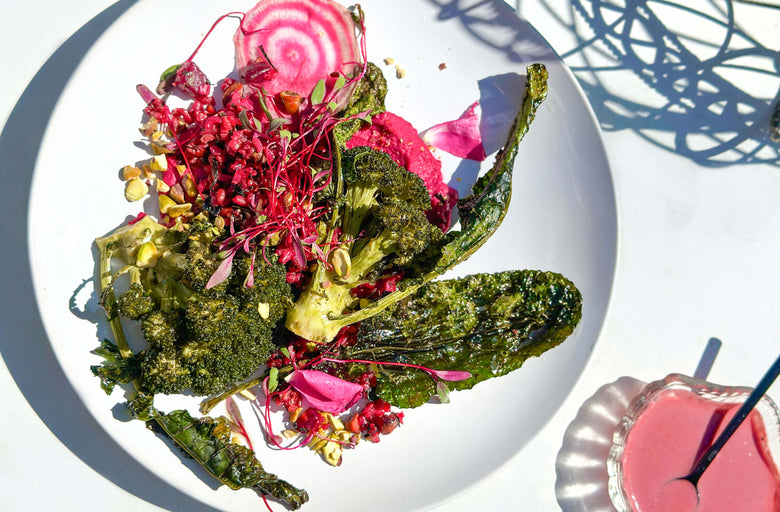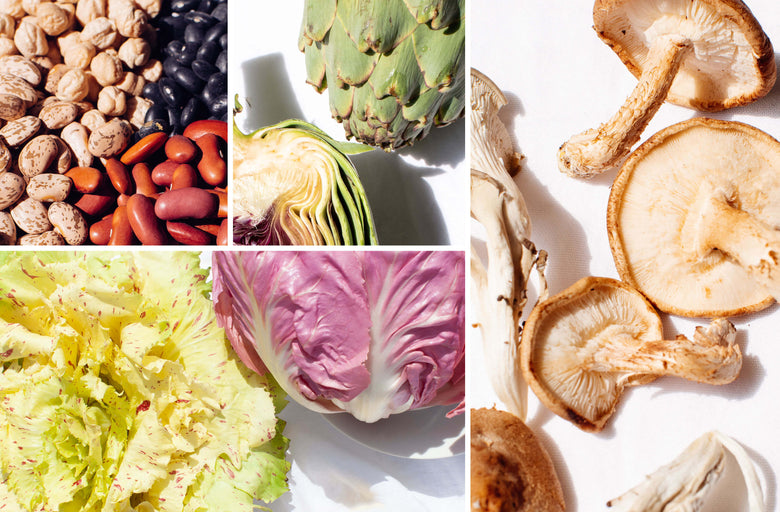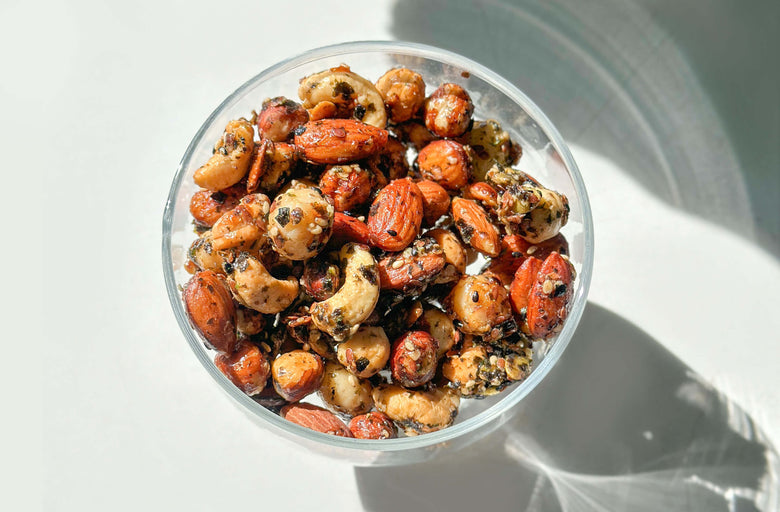The founder and executive director of Wellness in the Schools
Nancy Easton is on an important mission: to eliminate obesity-related illnesses that begin in childhood. As founder and executive director of Wellness in the Schools (WITS)—a national non-profit educating public school students about nutrition and exercise—she’s making strides toward her goal every day.
We sat down with Easton to chat about the routines and rituals that keep her energized, grounded, and shining.

As someone who works to empower others' wellness, how do you prioritize your own?
It comes quite naturally to me. It's my therapy and I need it for both my mental and spiritual health. I process during my swims, my bikes, my runs. Everything from the mundane, “What will I make for dinner?” to the big picture, “What's the next play for Wellness in the Schools?”
Scheduling a time of day for a fitness workout with friends keeps me accountable, and we get the chance to catch up and connect. The endorphins from running are better than a glass of wine.
Speaking of alignment of mind, body, and spirit, do you have any more go-to wellness rituals outside of exercise?
I'm addicted to acupuncture. I didn't have hot flashes during menopause, and I think acupuncture helped. And it took me a while to get into a regular meditation practice but now, I really enjoy it.
We hear you have an ice plunge ritual, too...
Yes. I had heard about cryotherapy years ago. My father was really into it. I once visited him, and he took me to one of those things where you get in the tank. I remember afterwards bending over, putting on my shoe and thinking, “Oh wow, my aches and pains have gone away, but I don't have the time or the money to keep doing this every day.”
Many years later, we were living outside the city during Covid on a pond and, as happens in the winter, the water got cold. I said, “Gosh, I don't need cryotherapy. I've got it in my backyard.” I would break the ice with an ax, sometimes more than once a day, and there became a community of us plunging together. It was just an amazing ritual. Particularly in the pandemic, it was a real highlight of our day. We stayed in for three minutes, and now we try to do up to 10. It's euphoric.

How would you describe your personal style?
I asked my editor friend and she said, “Jackie Kennedy meets Gloria Steinem. Classic, sporty, yet with a bohemian spirit.”
What energizes and inspires you?
I feel so lucky to do work that I absolutely love. Every day is different and brings some sort of joy—from the kids in the schools, a team member, a project that came to fruition, or a grant that came through. I feel like people my age are starting to retire and I'm like, “Why do you retire? I love what I do.”
Also, seeing my children grow up to be the best versions of themselves. Excelling at the things that they want to excel at, but more importantly in a way that's kind and authentic. They're great friends and great leaders, and they're well-adjusted, thoughtful, people. I love watching that.
If you have five, 10, or 15 minutes to recharge or reset, what are you doing?
The first thing I would definitely do is jump in the ocean, if I had the great privilege to be living right near one. If I'm in the city, I love The New York Times 7-Minute Workout. It's a great little burst of energy in the middle of the day.
[I’ll] call a good friend or one of my kids or my mom, or sing a song. I recently started taking singing lessons because my son plays the guitar.
Singing lessons! Any go-to songs or genres?
Okay, I'm smirking. [My son] plays a lot of rock—Eric Clapton, Red Hot Chili Peppers. There's a couple of rock songs that we sing together. I'm a horrible singer, but I love doing it… I've gotten to appreciate lyrics, more than I used to. There are so many love songs and songs about loss. My closest friend passed away two years ago and every time I sing songs about friendship, I start crying. My poor singing teacher.
You want to, in life, appreciate the tough as well as the beautiful. I mean it is beautiful, the tough.

What resonates with you about Sakara?
Everything about the philosophy. I do believe that food is medicine. I'm trying to end disease through feeding children. I also recently learned the [Sakara] mantra “Eat Clean, Play Dirty.” That is so perfect.
I'm driven by play. I love to get dirty—whether it's “big dirt” mountain biking or doing a crazy adventure race in the mud or “little dirt” just riding a bike or playing sports with my kids. And I'm naturally drawn to eating clean food to make all that play possible.
At Sakara, we have this thing called “S Factor,” which is all about being unique, provocative, and just the truest version of yourself. Could you speak to your approach to S Factor?
There's a line from Gloria Steinem that I love: “We move at the speed of trust.” I have a little joke with myself that I move fast, so I trust immediately. I'm drawn to people and am naturally comfortable around them. That is definitely an “S Factor” of mine. I've lived a longish life. I’m in my late fifties and there are very few times—I think I can count on half a hand—where that immediate trust has hurt me.
My husband often jokes lovingly that my mantra is “Ready, fire, aim,” meaning I don't really filter what I say. I'm vulnerable and pretty real. I think that in turn helps others to be their genuine selves.
So if you want to work for something beyond you, put yourself out there and just “ready, fire, aim!”
What is the legacy you hope to leave with your work? How have exciting recent milestones like Chefs Council made you feel as you make strides towards it?
When school lunch and school play is the priority for this nation and when it's recognized as important as reading and writing and arithmetic, and there are enough funds to make it easy and possible to feed kids in a healthy way (and not with processed and packaged meals). When cafeterias are beautiful places to connect over delicious food so that kids can nourish themselves in every which way and go back to class and learn… Then I can die.
I'm crying. Seventeen years of a lot of work are definitely starting to really pay off and it's not easy, but it's coming to fruition.






